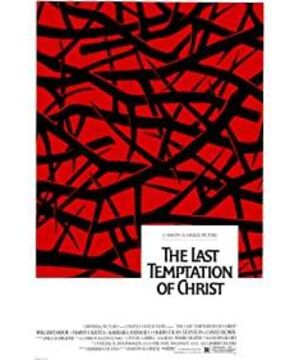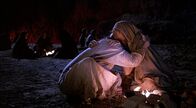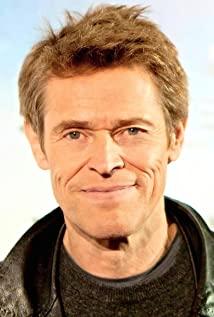Modernity and the Will of Director
Genesis: 1:3 God said that if there is light, there will be light.
The miracle started from the first person who could hear voices other than people speaking to him. Books like the "Bible" need some supplementary necessary readings and explanations. This is the prerequisite for religion to explain its logic and position.
The first question to answer here is: What is God ?
In the Western context, it should be said that since the emergence of human beings, the only two variables in the world are nature as the independent variable and human beings as the dependent variable. At the level of understanding, human beings create God or gods to establish a recognizable { symbol } in their concepts. Awe of nature is the original driving force of biological survival instinct, which drives the progress of human beings to transform nature, as history and future The result of the dynamic equilibrium game.
It can be speculated from Darwin’s theory of evolution that the beginning of a certain genetic mutation opened the long-closed "silent curtain", and the cognitive revolution began. The normal logic should be that generations of people make up stories and tell stories. Inheriting the story, the development of civilization should be presented as a gradual and orderly repetition of the rule ladder that history gradually climbs. However, actual facts and theories sometimes overlap in an unbelievably high degree of drama, similar to the probability of occurrence of gene mutations always occupying an important position in the origin of species. The convergence of many stories has brought mutations and leaps. The story of Jesus is one of the obvious examples. .
If it can be said that a source of Western culture comes from the old and new covenant stories of suffering, salvation, resurrection and rebirth, the different logics, different positions, and different perspectives of the experience of its gods start from desire, Impulse, purpose, and external manifestations are the ever-changing contradictions and conflicts between people. In "The Last Temptation of Christ", Martin Sr. tried to convey to everyone in an unreligious tone: both as a "God (Messiah) : Messiah)" The incarnation of Jesus is not only a legendary idol in cultural enlightenment, but also a person who has truly existed in history, divided according to his birth date.
Returning to the film, the most significant biographical form and structure, mixed with many inner monologues, the cause and effect of the matter are not detailed, can not help but make people curious, why is Martin filming such a clumsy location?
A note about { distance } needs to be introduced here . The Holocaust historian Raul Hilborg (the only historian interviewed in "The Holocaust") wrote in "The Destruction of European Jews": "It must be remembered (genocide) that most of the participants were not right. Jewish kids shoot or pour gas into gas chambers... What most bureaucrats do is draft memos, draw blueprints, and talk on the phone. They can destroy mankind as long as they sit at their desks." And Zygmunt Bowman also raised the issue of "moral blindness" in his book "Modernity and the Holocaust", which can be summarized as: There is a great distance between intention and actual completion, and behavior and consequences Cognitive asymmetry and inconsistency can easily deny the understanding based on common sense experience. For humans, these behaviors can easily be defined as the behaviors of others in their consciousness. Oneself is nothing more than an external will. A blameless tool. This can be better understood. Auschwitz comfortably throws toxic reagents into the sight glass "health officer" every day; completes the delivery of "little boys" and "fat" pilots with excellent flying skills; simplified training is enough. The young soldier who went to the battlefield to kill the enemy; and every time I watched "Saving Private Ryan", the discomfort and shock of the blade slowly inserted into the heart. Distance is the inducement and catalyst that can catalyze empathy.
This is what Martin quoted Kazanzaki's "spirit and flesh" quotation from the beginning of the article. The "clumsy" re-enactment throughout the article restores the original intention of the biographical character's growth and mentality. It can tell from the so-called failure to the so-called success with almost personal experience, without concealing all the tiny plots of all things and details, and revealing all the unsacred side of the sacred leader that the audience does not want to see. The various miracles of Jesus in the movie appear to be a bit slow and unbearable. In most of the film, he is more like a vulgar man who is slightly stronger than ordinary people among all living beings. He is hesitant and worried, humble and cowardly. God has given The One a great responsibility, but he hesitated over and over again in this important task. His heart was filled with contradictory thoughts. After saying goodbye to Magdalene, he came to the desert to accept the call of God and received his master to accommodate Jesus with his soul after death. The next day In the early morning, Jesus had a conversation with his servants. Jesus, a person who always listened to the oracles and caused headaches, had a discussion about sin between ordinary people who have been dedicated to hearing the oracles all his life. Jesus said that he was here. Fear is God. , Is power, is a parent, he frankly admits that he is a liar, hypocrite, claiming that he wants to resist God but has no courage. In fact, he couldn't even distinguish between God and the devil, and he was hesitant about what God's will was.
In the form of the video, Martin uses serious and rigorous religious lighting, and more uses externalization; abandoning solemn religious soundtracks, using rather experimental and trendy percussion and string music; many special effects even make people " Unbelievable"; many quick zooms, subjective shots, etc., show absolute stylized subjective initiative.
In fact, looking back at film history, you can see Delaier's "absolutely off-site" piety; Buñuel's "Velidia"'s evil taste of picking up religious underwear; Bergman's various representations of "God is dead". In the continuation, evolution, and evolution of all thoughts, spirits, and emotional states, the most distinctive attitudes stand on this side of man, and can even be summed up in a simple and crude way of binary opposition: on the other side of God.
In the 19th and 20th centuries, the 19th and 20th centuries, the father of sociology, the father of sociology, the core content of Protestantism with tasks arranged by Protestant ethics and tasks arranged by God, the concept of "mission"; the tacit and transcendental sense of religious inspiration; predestination, God With existing arrangements and free will to choose; asceticism that requires people to restrain their desires and give up material enjoyment, etc., modernity is tempered. Modernity is a state in which civilization is self-evident. Since it is a state of existence, its phenomena and meanings must be ever-changing and indescribable. Just like daily life experience, it can never be a high-level summary and statement. Generalization is also to express the dual opposition to "classic". In modern society, in opposition to ancient life, some impression words about modernity are probably: material, abundance, loneliness, loss, anxiety, fracture, turbulence, chaos , Accident, struggle, secularization, contradiction, duality... These words roughly represent the characteristics of various sections of modern life. From Luther’s religious reforms, Weber discovered the unique roots of the Western rationalist tradition. How the illusory concept can penetrate the world’s historical facts and leave an indelible mark in the course of history. It can be said that the modern bourgeoisie It is forged by conceptual thinking and interpretation. Modernity is a process of social rationalization and a weapon used to disenchant religious sacredness. I believe that in today’s society, the pursuit of personal success and the realization of self-worth, The emphasis on the happiness of this life has long reached the level of unshakable natural truth. Few people will choose life like the ancients who easily give up their lives and come to serve God, not to mention the countless ugly "noble names, undercurrents". In various scandal cases, the modern society’s disenchantment of past divine principles is unprecedented or unparalleled. People are no longer so eager for the happiness of the next life and the secular doctrine of the supremacy of money. Modern people are busy with all kinds of visible practical benefits.
And Martin, standing on the shoulders of the giant Weber who pointed the direction, followed in the footsteps of sages such as Dreyer, Bunuel and Bergman, and brought the de-enchanted modernity into this man-to-man God, among the video stories that have been told countless times.
It is not difficult to see that Jesus in Martin’s lens was the person who first felt outside the self. He had a natural original sin for the prophet who could hear the voice of God, telling himself to become the Messiah in the story he told ( Messiah), can even hide why there are countless missionaries who can give up their lives to serve God. Irrational appeals can urge them to always make a great historical endorsement for God, but which priest can say that he is qualified to be high above the earth. Is it equal to the only Son of God? Everyone feels that being special does not mean that no one is special. It just means that special is a universality. Even further, human rights are not talents, but human gifts. Natural laws should no longer be the transcendental goodness that the ancients called. The natural nature of human beings is no longer an objective order that binds people, but has become human self-preserving instinct, desire and will. This is actually a natural right of man, from which we can even vaguely see the light of liberalism in the future.
It is true that this perspective of restoring Jesus as a human being is the most determined form of the film, but it is still not enough to describe the essence of the old Martin really wishing to percussion. He tried to tell the essence of the temptation of Christ. We have come to the last part of the film's structure.
{Jesus endured suffering that ordinary people could not bear.
He shouted: "Father, why do you abandon me here."
The relatives who didn't understand, cried loudly, heartbroken, the enemies who didn't understand, laughed happily and were overjoyed, no one understood the deep power he unselfishly released.
His pain (whether physical or psychological) was so grief that it needed divine rationalization. Satan came to tell Jesus that it was a test of God. }
Next, Jesus thought that he had received the instructions of God’s test, but he was relieved from suffering and thought that he had completed the test. He already believed in everything that was told by the guardian of God’s vocation. It can finally be said that Jesus was the “tool” of God . The instrumentality is dispelled here, and a normal human being with seven emotions and six desires is formed, so human subjectivity appears. The emphasis on human subjectivity is the core of modernity. This explanation is in addition to the more general essential cognition: that is, the most reasonable representation of universal cognition, derived from the external manifestation of the essence of things, and the context after the crucifixion. establish the basis for future generations of human auditory visual, verify the nature of things unknown a priori illusion that symbolic order , only humans living in the symbolic order of groups of animals, deduced from the language between reality and the real objective world There is always a gap. The core of trauma left by human beings entering the symbolic order is a sign of human nature, which is also the rational core of the story of suffering . (This traumatic core is what Lacan calls the truth)
Weber once put forward the rational view of exchanging greater value at less cost. The topic of the narration is exactly: sacrifice is the original sin of Jesus, is he still willing to advance for all living beings who may be ignorant and will not be enlightened?
Here, there is a transcendental rift that is difficult to overcome. For Jesus, it is the integration and transmission of transitional and complicated information, while the other side is the supreme truth that the "lost lambs" listened to and obeyed. In this sense, God's original intent is a real existence that is difficult to describe, cannot be seen, and cannot be reproduced. Even Jesus, the only son of God, can only be known through the archangel (Satan). Therefore, human beings have to face the unknowable and unnecessary of the divine will itself, and return to the theory that everything is a projection of something under Plato’s “absolute concept”: God is the one that does not appear at all and is difficult to reproduce. If it is unnecessary, it should Culled by Occam's razor.
Under the razor, it is rationality .
The text and images at this time complement each other, showing the ultimate expression: the value rationality of human subjectivity is the basic driving force for human progress. It can get rid of the paradox of irrational instrumental rationality when rationality transforms from a formal means of improving efficiency into an end itself. It actually restores the ineffable and transcendent understanding of mankind's salvation of Jesus. In this sense, the last paragraph of "temptation" in structure is precisely the true spiritual experience that cannot be eliminated .
It’s not difficult to even see that Martin Sicoses, who came from the self-confidence of the new wave of independence from childhood in Italy and the streetism of Queens, has achieved epic ambitions of revolutionary idealist heroic values in light and shadow. He learned from Hollywood. From the old world to the new world, starting from the will in "Poor Streets", the great loneliness in "Taxi Driver", the gorgeous admiration in "New York, New York", the intense pain in "Angry Bull", " The cynicism in "The King of Comedy", the playful absurdity in "After get off work", and the social long-cherished documentary of "The Good Guy", etc., have gradually grown into one of the banner holders of the new Hollywood style. Its style is hard to ignore. Has long been firmly embedded in the film history sequence, in the film this bible, wrote a small verse of his own gospel.
View more about The Last Temptation of Christ reviews











